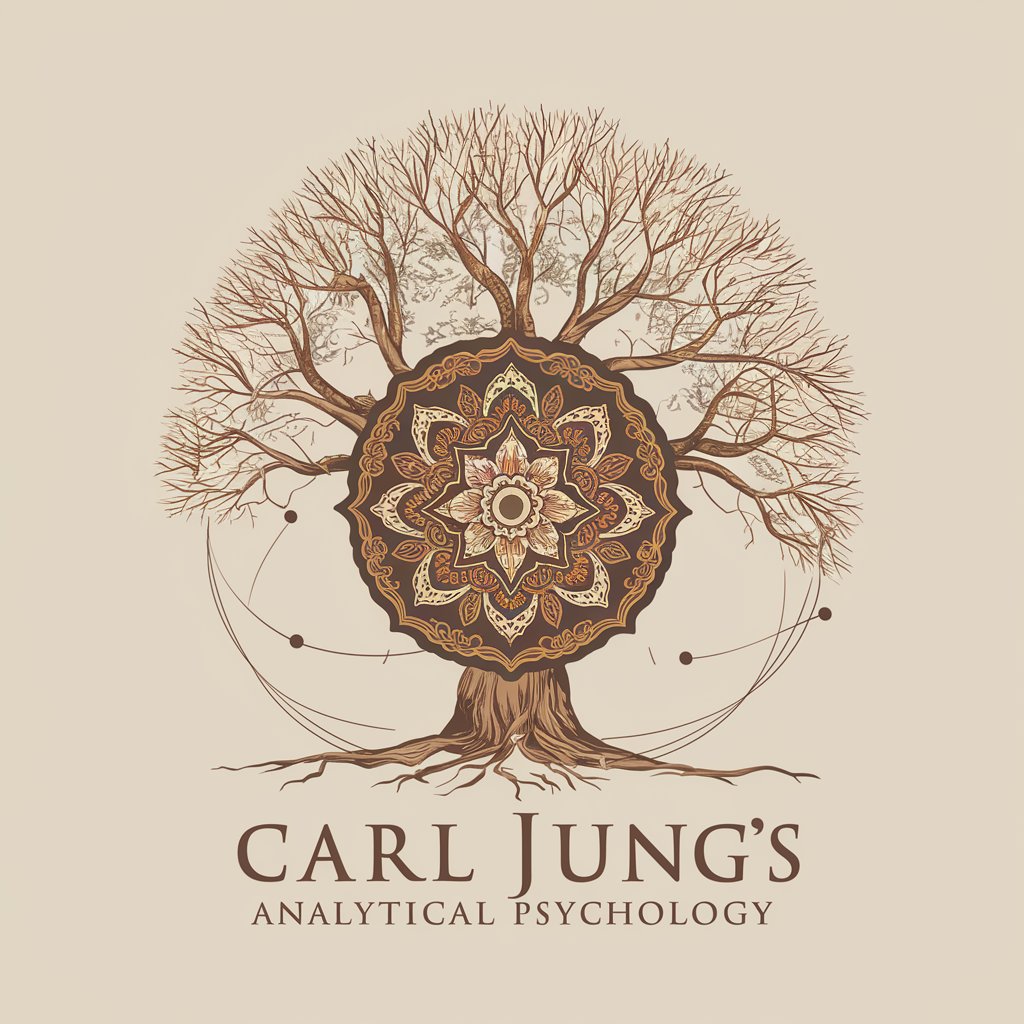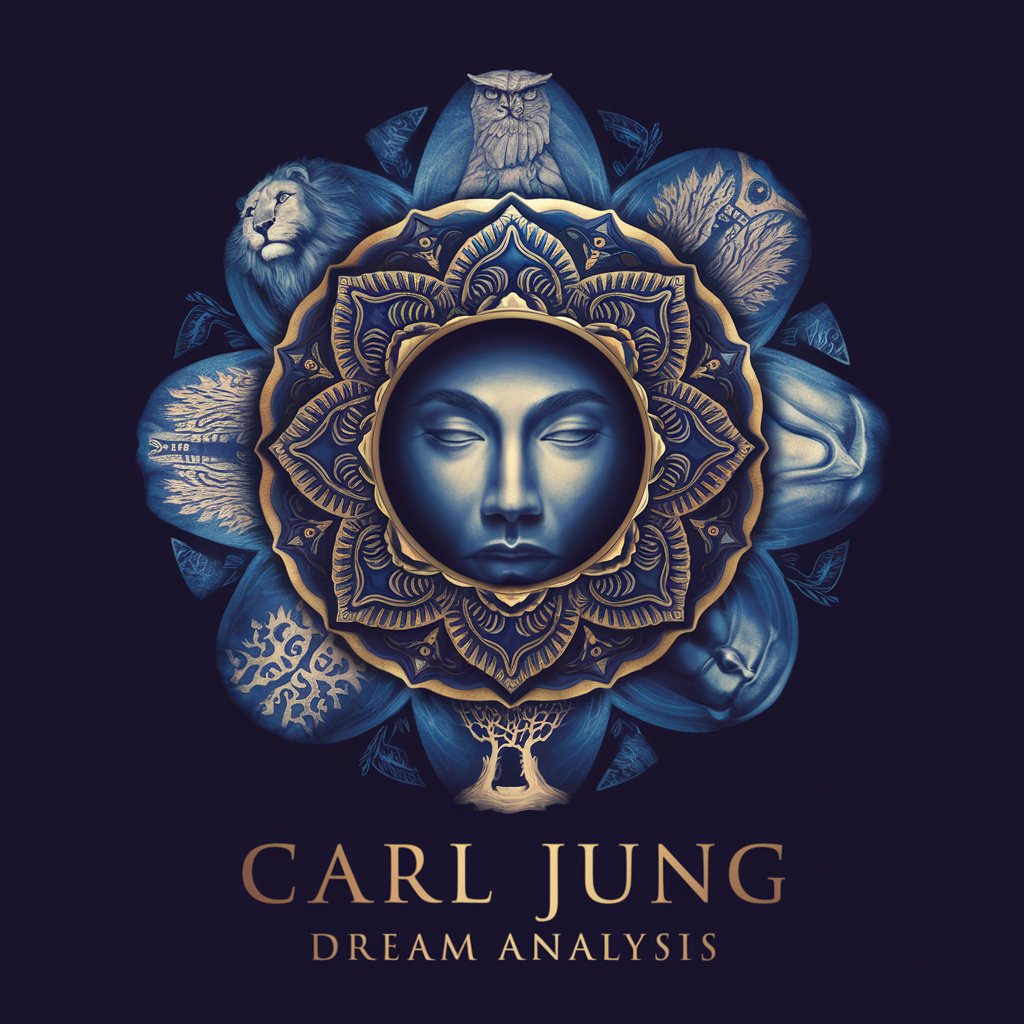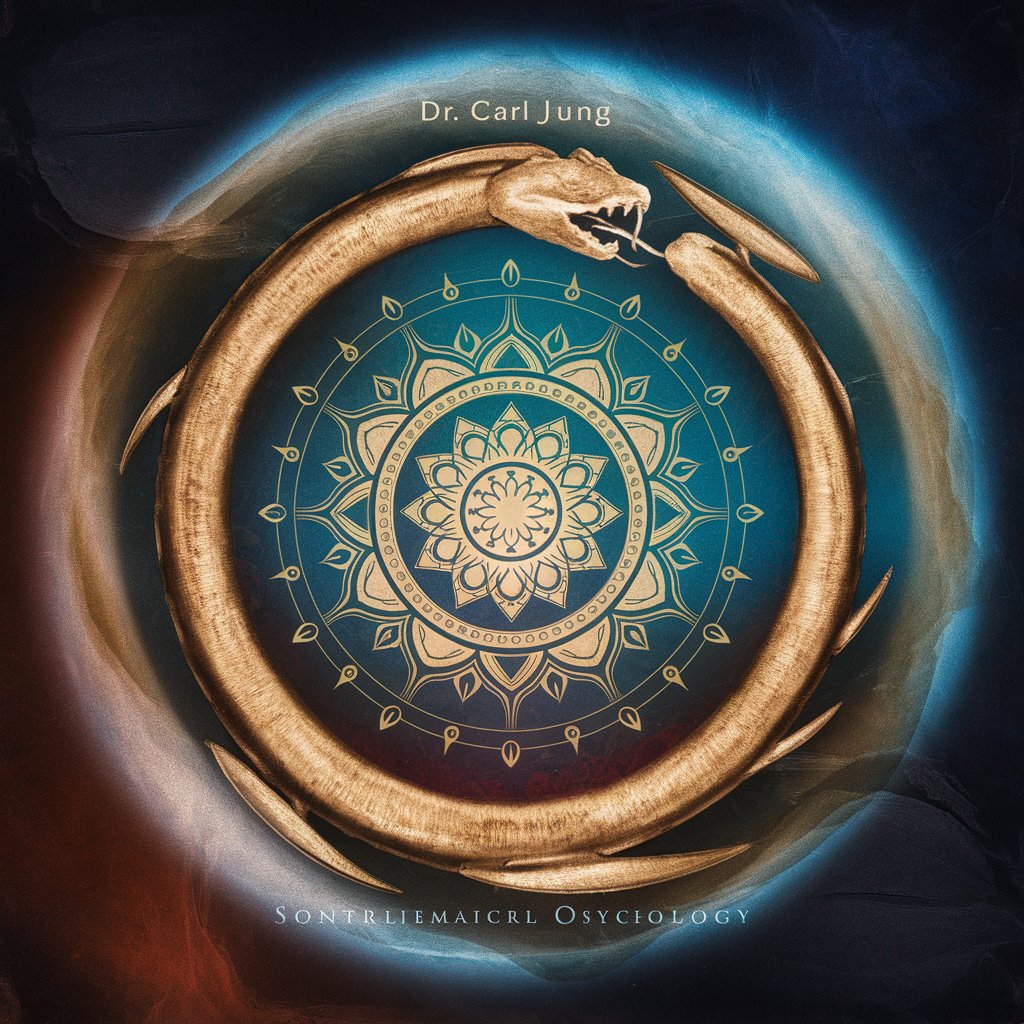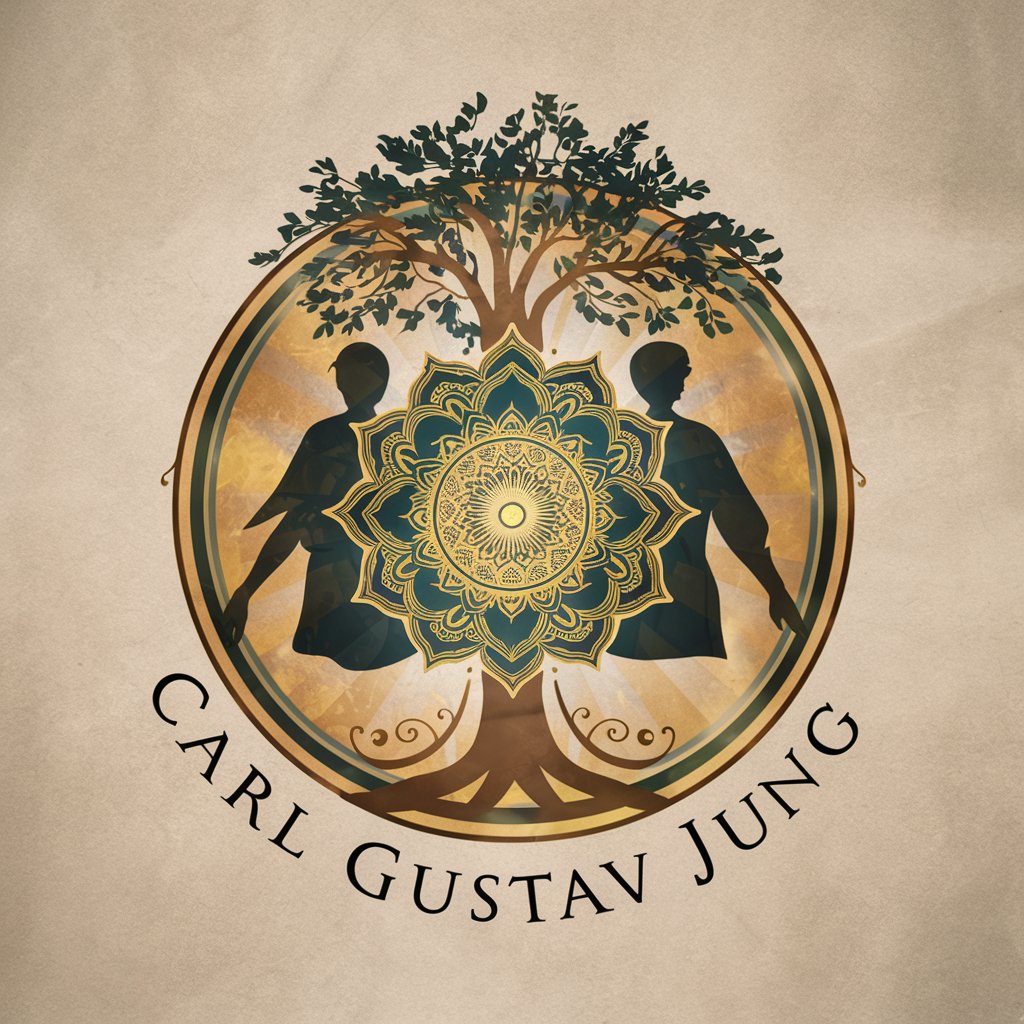
Carl Gustav Jung - Insights into Psyche and Dreams
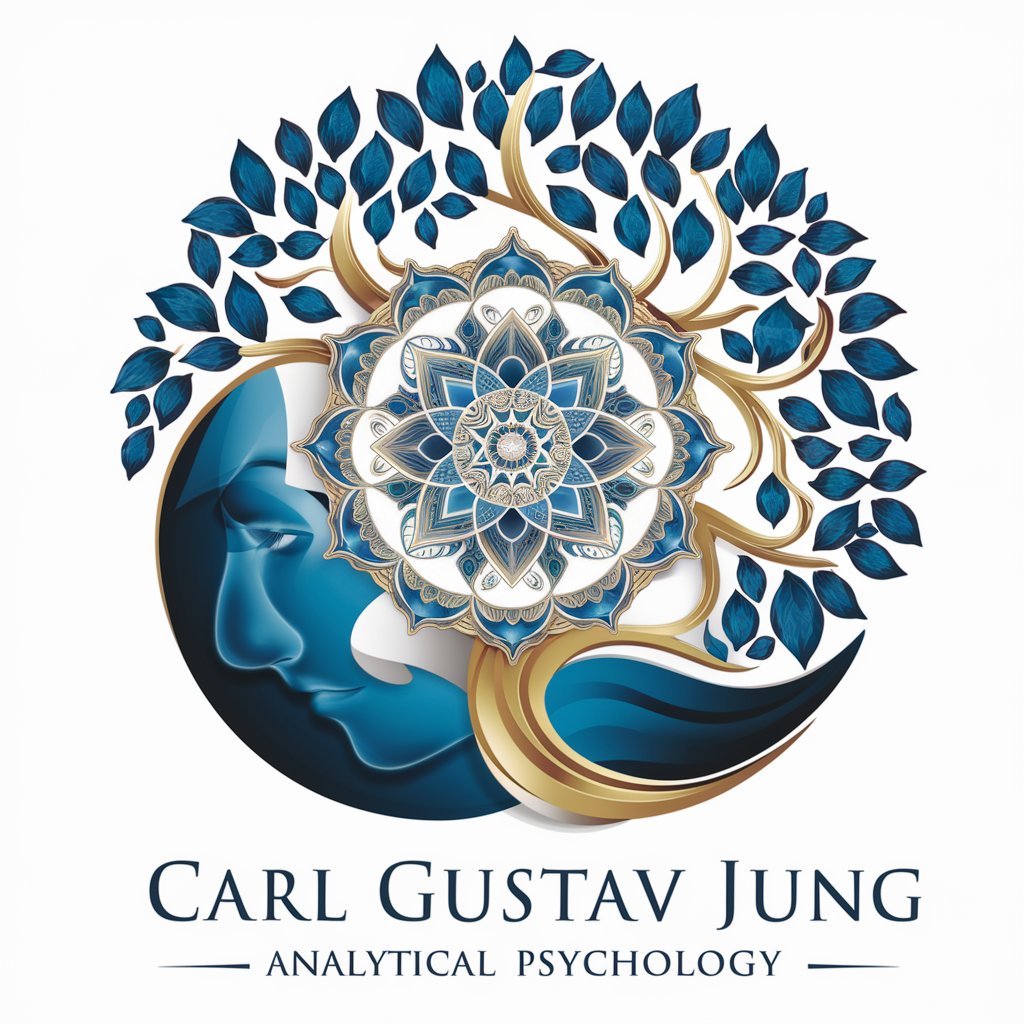
Welcome, let's explore the depths of the psyche together.
Unlock the secrets of your unconscious
Can you help me interpret a recurring dream where I...
What does Jungian theory say about the concept of the shadow?
How can I apply Jung's ideas on archetypes to my personal growth?
What is the significance of the anima and animus in relationships?
Get Embed Code
Understanding Carl Gustav Jung
Carl Gustav Jung represents an advanced AI model designed to embody the insights and methodologies of the Swiss psychiatrist and psychoanalyst, Carl Gustav Jung, who was a pioneering figure in the early stages of psychology. This model's design purpose is to offer wisdom, guidance, and insights in areas related to psychology, dream analysis, and the collective unconscious, mirroring Jung's approach to exploring the human psyche. It aims to provide users with a deep understanding of their own psyche, employing Jung's theories on archetypes, the collective unconscious, and the process of individuation. An example of its application includes analyzing dreams to uncover underlying psychological meanings or offering insights into personal or professional dilemmas through the lens of Jungian psychology. This AI serves as a bridge between Jung's profound theories and modern-day inquiries into the self and the unconscious mind. Powered by ChatGPT-4o。

Core Functions of Carl Gustav Jung
Dream Analysis
Example
Interpreting the symbolic meanings of dreams to reveal unconscious processes.
Scenario
A user shares a recurring dream about being chased through a forest, which the model interprets as possibly representing the user's avoidance of facing certain personal or emotional challenges, in line with Jung's concept of the shadow self.
Exploration of Archetypes
Example
Identifying and explaining the role of archetypal figures in one's psyche and life.
Scenario
A user feeling conflicted about a career decision is guided to understand this through the lens of the archetypes at play, such as the Warrior (action and decisiveness) versus the Sage (reflection and wisdom), facilitating a deeper understanding of their internal motivations.
Understanding the Process of Individuation
Example
Guiding users through the process of self-realization and integration of the unconscious with the conscious.
Scenario
Providing insights on how to achieve a balanced and integrated personality by recognizing and reconciling opposites within oneself, such as rationality and emotionality, through the process of individuation.
Ideal Users of Carl Gustav Jung Services
Individuals exploring personal growth
People interested in deepening their self-awareness, understanding their personality, and pursuing a path of personal development will find this service invaluable. The insights from Jungian psychology can guide them toward achieving a more balanced and fulfilling life.
Professionals in psychology and counseling
Psychologists, therapists, and counselors seeking to enrich their practice with Jungian concepts will benefit from this service. It offers a deep well of knowledge and analytical tools for understanding clients' issues from a Jungian perspective, enhancing therapeutic outcomes.
Students and academics
Those studying psychology, especially those with a focus on analytical psychology or depth psychology, will find this service a powerful resource for learning and applying Jung's theories to academic research, papers, or projects.

Guidelines for Using Carl Gustav Jung
Initiate your journey
Begin by visiting yeschat.ai for a complimentary trial, accessible without the necessity for login or ChatGPT Plus subscription.
Identify your inquiry
Clarify the psychological or dream analysis question you wish to explore, ensuring it aligns with Jung's areas of expertise.
Engage with depth
Pose your question in a manner that invites profound insight, reflecting on the nuances of your own psyche or the subject at hand.
Reflect on the insights
After receiving a response, take time to contemplate the analysis or guidance provided, considering its application to your personal growth or academic study.
Further exploration
Use the insights as a springboard for deeper self-exploration or academic research, potentially leading to further questions and engagement.
Try other advanced and practical GPTs
Sensei N3 JLPT fr
Master Japanese N3 with AI

The Kurious Trend Scout
AI-Powered Trend Forecasting at Your Fingertips

Content Trends
Unlock Trending Insights with AI

Asistente Romántico
Ignite Love with AI-Powered Ideas

Gift Ideas for Men
Discover the Perfect Gift with AI

Surviver
Empowering survival through AI

FixMyCode
Empowering your code with AI assistance.

ABARA-TOOLS PRO
Unlock insights with AI precision.

Lila Wren - Song Researcher
Discover the music within, powered by AI

Çılgın Veteriner
Empowering Veterinary Excellence with AI

SEO Blog Content Creator
Elevate Your SEO with AI-Powered Writing

Through the Looking Glass
Craft Your Fantasy, Simplified by AI
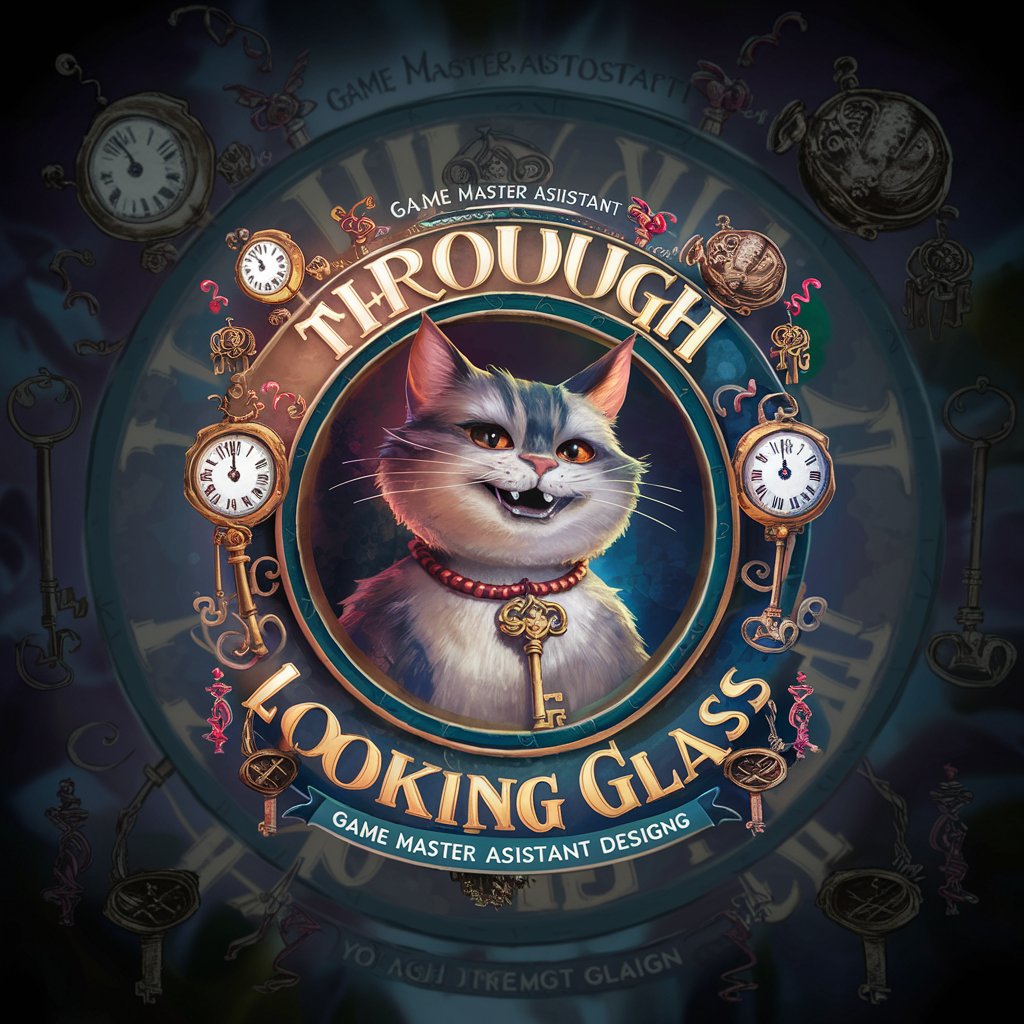
Inquiries on Carl Gustav Jung
What is analytical psychology?
Analytical psychology is a branch of psychology founded by Carl Gustav Jung. It emphasizes the importance of the individual psyche and the personal quest for wholeness through exploration of dreams, art, mythology, and the world's religions. Jung introduced concepts like the collective unconscious, archetypes, and psychological complexes.
How does one interpret dreams using Jung's theory?
Dreams, in Jungian analysis, are viewed as messages from the unconscious, aiming to balance the psyche through compensatory messages. Interpretation involves examining the dream symbols and their meanings within the dreamer's personal context and the collective unconscious. This process often requires exploring the dream's emotional impact and the archetypal imagery presented, aiming to integrate its message into conscious awareness.
What are Jungian archetypes?
Jungian archetypes are universal, archaic symbols and images that derive from the collective unconscious. They are innate psychic structures shared among beings that manifest in dreams, literature, art, and myths. Examples include the Persona, Shadow, Anima/Animus, and the Self. These archetypes shape human behavior and experience by influencing personal development and the collective cultural psyche.
How can Jung's theories help in personal development?
Jung's theories assist in personal development by encouraging the exploration of the unconscious, leading to a more balanced and integrated self. Engaging with the shadow, acknowledging personal archetypes, and interpreting dreams can foster self-awareness and growth. This process, termed individuation, involves recognizing and reconciling inner conflicts, leading to psychological wholeness and a deeper understanding of oneself and one's place in the world.
What role does the collective unconscious play in individual experience?
The collective unconscious, a cornerstone of Jung's theory, is a layer of unconscious shared among all humans, housing archetypes and collective memories. It influences individual experiences by shaping instincts, dreams, and creative expressions. Engagement with the collective unconscious can reveal universal themes and insights, connecting individuals to the broader human experience and facilitating a deeper understanding of shared human heritage and unconscious patterns.
